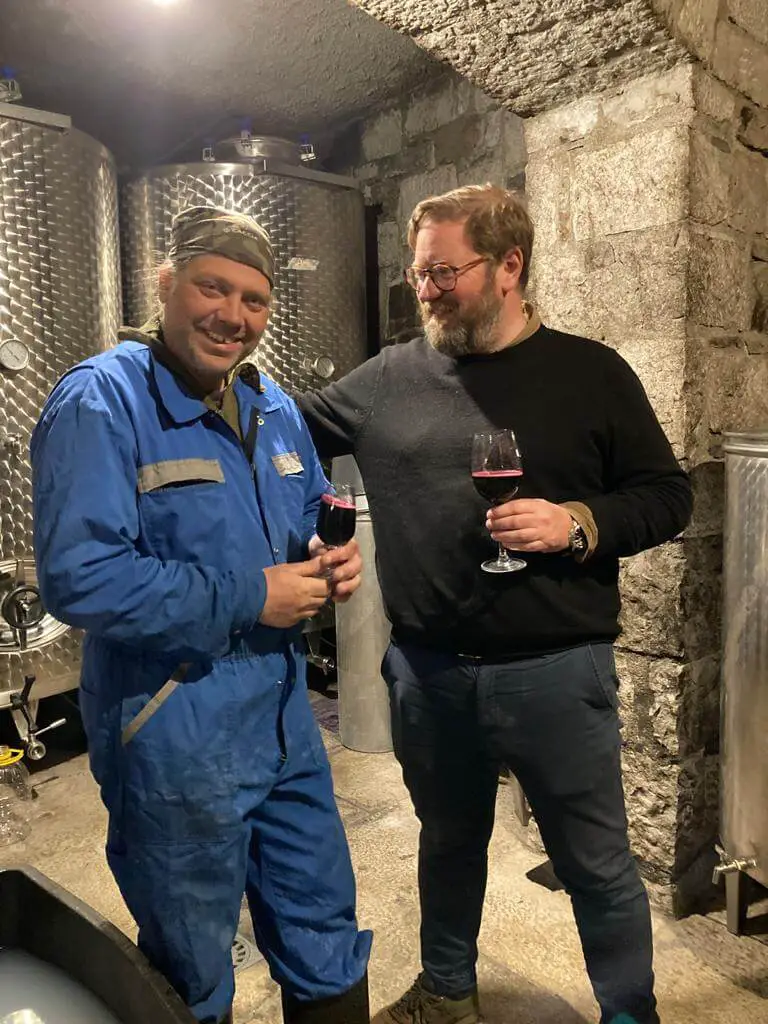Ljubljana related
Experience the quality of the wines from Vipava Valley and learn about their rich history from the local winemakers.
In recent years, Slovenia has been recognized as one of the top wine-growing countries. Home to the oldest grapevine in the world, the country has an extremely rich and interesting history of winemaking. Whether you prefer white or red, sweet or dry, we guarantee in Slovenia there is the perfect variety waiting for you to taste it.
If you are not sure where to find it, here’s a tip. No other Slovenian wine region boasts as many old indigenous varieties as the Vipava Valley, so it is the perfect destination for a wine tasting experience that will last a lifetime.
What makes Vipava Valley so special?
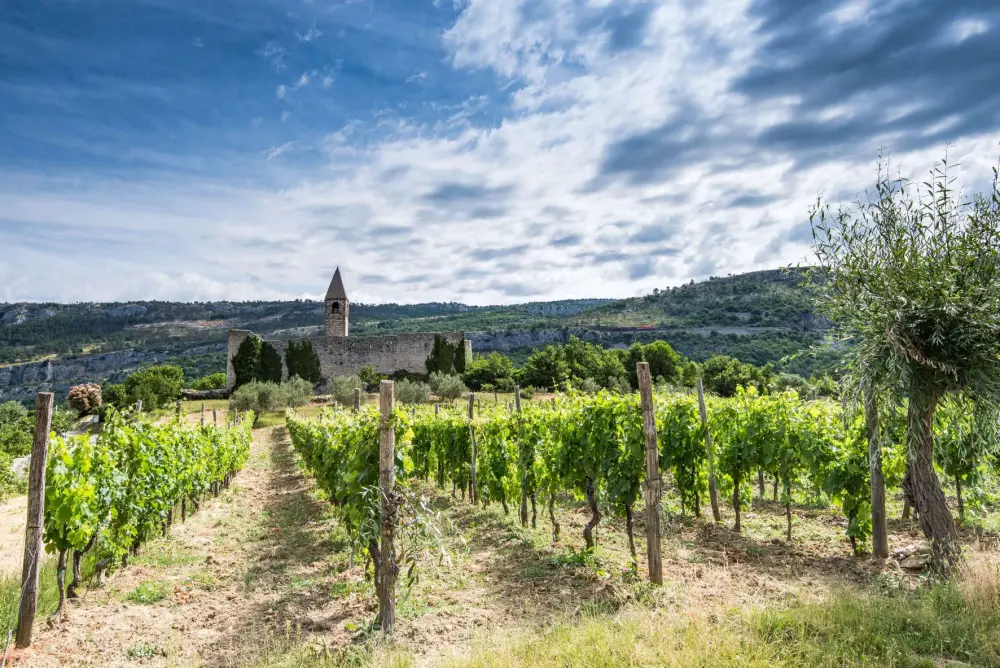
Discover the secrets of Vipava Valley wine-making
One of the appeals of Vipava Valley is without a doubt its unique location. It is caught between the Alpine, Karst, and the Mediterranean, so by visiting this amazing region, you will get the best of three worlds. Vipava is considered a transitional region and because of that, it endured many turbulent conflicts. One of the most famous ones was the Battle of the Frigidus, a battle between the Western and Eastern halves of the Roman Empire.
But even the vicious fighting did not stop a tradition that is inseparable to the residents of Vipava Valley. And that tradition is winemaking.
Indigenous varieties preserved with dedication and love
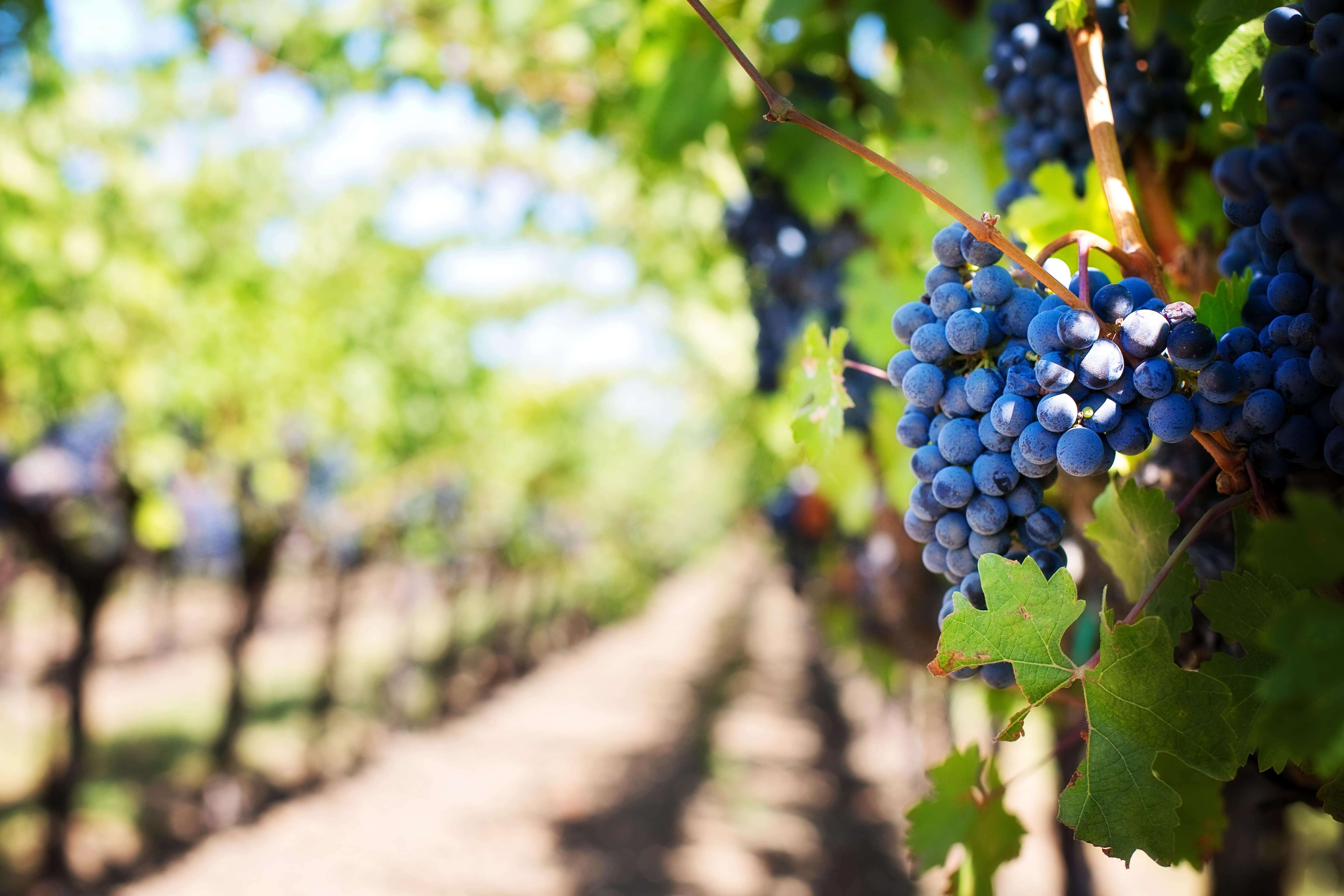
Try the authentic varieties of Slovenian Wine
The combination of the unique location, favorable soil composition, and sunny climate allowed the winemakers of the valley to preserve a surprising number of historic local varieties. Although there are some amazing red wines to try when wine tasting in Slovenia, like Barbera or Merlot, the region is most famous for its white varietals.
An authentic grape variety that you simply must try when visiting Vipava is Zelen. Its gentle flowery and fruity aromas are complemented by Mediterranean herbs that give it a very special taste. Some other indigenous white varieties are Pinela, Klarnica, and Pergolin.
Unmatched hospitality of the local winemakers
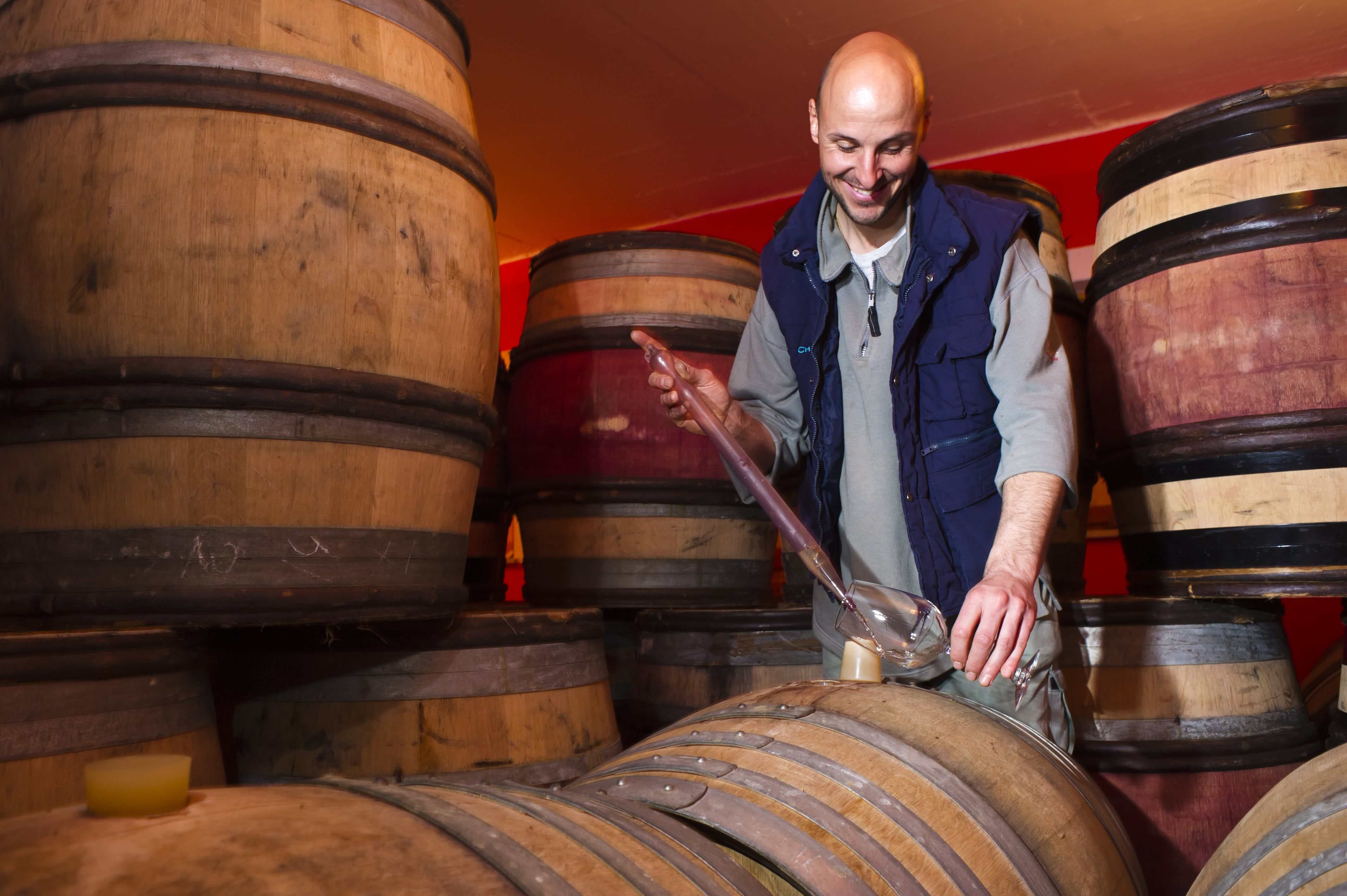
Learn from the knowledgeable winemakers
“Give a man a bottle of wine, he drinks for a day. Teach a man to make wine, he’ll always have lots of friends” is an ancient winemaker’s proverb that you will find to be very true once you visit the dedicated winemakers from Vipava Valley. They will be more than glad to share with you their stories, teach you about the history of the region and if you are lucky, share with you some secrets to making great wine.
We recommend booking a wine tour on which you will be welcomed by some of the best local winemakers that will take you to their wine cellars where you will get a taste of the region’s authentic varieties.
Tasty local cuisine

Make memories at a traditional wine tasting
There are not many pleasures in life that exceed pairing rich authentic wines with tasty local cuisine in the company of your closest ones. Taking a break and trying some traditional foods will also give you the energy to explore this region to the fullest.
You simply cannot go wrong with dry-cured Karst prosciutto, known as “Kraški Pršut” in Slovenian. Its texture and taste pair the wines so well, that it became almost synonymous with a proper Slovenian wine tasting. That way, you will be taken on an incredible culinary journey that you, and especially your taste buds, will never forget.
For an all-inclusive wine-tasting adventure in the exceptional Vipava Valley visit Wine Tours Slovenia and experience the country’s rich winemaking tradition in a single day.
STA, 12 April 2022 - Eight restaurants from the western region of Goriška Brda have joined forces to launch of a new brand in a bid to promote local cuisine in this wine-growing region.
"The Brdalicious brand aims to bring together local gastronomy businesses and offer a plethora of regional delicacies year-round," Tina Nova Samec, the head of the local tourism centre, told reporters on Tuesday.
The brand is to further promote the Brdo region and attract locals as well as foreign visitors, thus help tourism services providers, who are part of the project, to expand their business.

Inspired by the region's culinary traditions, the project will kick off with tastings, spanning over two months and bringing together gastronomy providers, each of which will prepare a dish representing Brdo's culinary heritage.
The tastings will feature dishes typical of the Brdo region, such as white polenta, potato gnocchi and frittatas, all of them paired with wild microgreens.
Such seasonal dishes will be associated with the new brand year-long with special emphasis on festive delicacies, such as briške fulje, sweet fried bread dumplings that are served for Easter, or krodegine, meat sausages served on Saint Martin's Day.
The brand's goal is to present the region's culinary history while also attracting foreign food enthusiasts and provide them with high-quality service.
STA, 1 March 2022 - The Vinakoper winery sent its first shipment of top quality wine to Ghana on Tuesday in what is a major step towards the planned expansion in the African market. The Koper-based winery intends to gradually enter other African countries as part of long-term cooperation with the company M&J Papala.
In recent years, Vinakoper has significantly increased exports and has been focussing on entering new markets.
Apart from exports to Slovenia's neighbouring countries and other EU countries, the winery has been selling its wine mostly to Asian markets, especially Hong Kong, Vietnam and Japan.
The first container ordered by Ghana is the first shipment of Slovenian wines to the African country, which is considered a good point of entry on the West African market.
Currently the wine market there consists of around 30% of imports, mainly from France, South Africa, Italy and Chile.
Vinakoper CEO Borut Fakim said the first package of wines would be a test of the new environment, so a very diverse selection of top quality still and sparkling wines had been sent to the country, which were expected to go very well with local culinary specialities.
STA, 30 January 2022 - An average Slovenian drank 35 litres of wine, or just over 46 standard bottles, in the marketing year 2020-2021, that is nearly three litres a month. The country's wine consumption in this period totalled 764,000 hectolitres, and the self-sufficiency rate stood at 95%, according to data released by the Statistics Office.
Slovenia produced 725,000 hectolitres of wine during this period, with white wine accounting for 70%.
Wines with a protected designation of origin contributed 58% to the country's total wine production, or 423,000 hectolitres.
White wine seems to have been a bit more popular in 2020-2021, as it represented 66% of the total wine consumption in the country.
The average Slovenian drank 23 litres of white wine in the last marketing year, or almost 2 litres a month. Slovenia was completely self-sufficient in this period when it came to white wine.
STA, 7 November 2021 - Slovenia will produce 10-15% less wine than last year, mostly due to the Dolenjska wine region being strongly affected by the spring frost. However, wine growers around the country report it has been an above-average year in terms of quality.
The drop in quantity is also attributed to lower yields of certain varieties in the other two wine regions, but not as such as in Dolenjska, where only half of last year's production was achieved, Marjan Colja of the Wine Association of Slovenia has told the STA.
Colja, the director of the wine producer Vina Kras, noted that the production was close to normal in the western region of Primorska, while the Kras area had been affected, not by frost but by wild boars and birds.
Wine growers are nevertheless more concerned about the quality of wine than about reaching records in terms of quantity as competition in the market is fierce and demand has dropped due to the Covid-19 pandemic.
Weather conditions were favourable ahead of the harvest, with the sunny and not so cold weather being very useful. Colja noted that wine growers around the country reported that it was an above-average year in terms of quality.
The largest Slovenian winery, P&F Wineries, said that despite the very demanding spring and damage done by the frost, the quality of wine was the best in the last 12 years according to preliminary estimates.
In addition to the lower production, wine growers and wine makers have also been affected by coronavirus restrictions, as public lockdowns resulted in lower sales to hotels and restaurants.
Another blow comes as the majority of celebrations of St. Martin's Day around Slovenia have been cancelled due to growing infection numbers, including the largest event in Maribor. "The closures certainly bring nothing good," Colja said.
According to him, some wine cellars decided to distil excess wine, which is being supported by the state. "However blasphemous this may seem to a wine maker, it is still better to make something useful ... than sell at dumping prices."
Colja added that the major winery companies had been generous this year to grape producers and had been ready to raise the purchase prices of grapes, which he believes was the right decision.
While it is not easy to sell wine either in Slovenia or abroad, he noted that exports were still a problem, in particular to the Chinese market, the reason being that there are fewer fairs and opportunities for promotion due to the pandemic.
Colja said that the state had the key role in promoting export activity, and that wine makers were perhaps subjected to too many restrictions. "Many prefer not to use state funds because they don't want to have administrative problems."
According to the Agriculture Ministry, between 80 and 90 million litres of wine is produced in Slovenia annually by more than 2,500 registered wineries that bottle their own wine. Eleven producers make more than half a million litres a year.
The ministry has told the STA that experts of the Chamber of Agriculture and Forestry had estimated that this year's production will amount to around 55 million litres of wine.
Vineyards in Slovenia are located on steep slopes, which means very expensive production, but also good quality, with quality wines representing as much as 70% of total output.
The total land area covered by vineyards has not changed significantly in recent decades. It was increasing until 1996, after which it started to decline slightly. Compared to 2010, the land area covered by vineyards today is 5% smaller.
Last year, the average price of wine with the Slovenian geographic origin sold in Slovenia and in the EU markets was down for all categories of wine compared to 2019, while sales were up by 6%, with sales of wine for distillation included.
Slovenia mostly imports wine from North Macedonia, Italy, Germany and Hungary, while it exports its quality wines to Germany, Croatia, the US, the Netherlands, Bosnia-Herzegovina and, in recent years, to the Czech Republic.
STA, 22 October 2021 - The Wine Train, a new tourism project aiming to promote wines and local cuisine in the south-western Vipava Valley, has been launched. After the first test run at the end of August, the train was officially launched on Friday and is expected to take the first groups on wine-themed trips in December.
Aboard the Wine Train, passengers will be able to observe the landscape while tasting local wines and meet winemakers in the vintage passenger carriages, said the project developers.
"The Vipava Valley Wine Train is a follow-up to our Winestronaut project. We have been looking at the Nova Gorica-Ajdovščina railway line for some time, as it has been completely abandoned in terms of passenger transport," said Matjaž Zgonik, one of the project leaders.
Director of the Burjatik tourist agency Jani Peljhan added that the project would revive the abandoned railway line and thus contribute to responsible and sustainable tourism.
"Sustainable mobility is extremely important nowadays, so I am very pleased that the Wine Train will revive a railway line in this part of the valley," said Darja Kocjan, director of passenger transport at the national railway operator Slovenske Železnice.
The wine-themed tourism trips for groups are expected to start in December, with regular trips coming in the following tourist season. The wine train's route will start in Nova Gorica and conclude in Ajdovščina.
STA, 6 May 2021 - The government has issued a decree on measures to remedy the market disruptions in the wine sector caused by the coronavirus pandemic, worth EUR 5.1 million. Like last year, the decree provides for temporary exceptional measures of crisis wine distillation and crisis wine storage for this year.
Around EUR 5.1 million will be allocated for the two measures - EUR 4.8 million for crisis distillation and EUR 300,000 for crisis wine storage. The two measures will be financed by the sector-specific national financial envelope for wine, while additional funding will also be provided by the national budget.
According to the Agriculture Ministry, an estimated 10 million litres of wine need to be withdrawn in order to rebalance the wine market in Slovenia, based on the level of wine stocks in 2020 and an inquiry into the stagnation in wine sales.
Last year, measures were already taken to withdraw certain quantities of wine that are not marketable, due to significant disruptions on the wholesale wine market, retail and beverage service sectors.
These measures include crisis distillation of wine into industrial alcohol or alcohol for medicinal purposes and crisis storage of wine, whereby a certain quantity is temporarily withdrawn from the market, the Government Communication Office said.
STA, 12 April 2021 - The sub-zero temperatures hitting last week could result in EUR 40-50 million in damage caused to fruit and wine growers, Agriculture Minister Jože Podgoršek said on Monday as he continued visiting the frost-stricken areas. This is on a par with 2016 and 2017, when damage reached some EUR 45 million. He announced state aid measures.
Podgoršek visited Trebnje in the south-east of the country and State Secretary Anton Harej was in the Vipava Valley in the region of Primorska, west.
The minister said it was still too early for the final estimate of the damage, but noted there will be practically no Slovenian fruit this year.
The Administration for Civil Protection and Disaster Relief will be asked to assess the damage across the country, and also include the March frost in Primorska, west.
The minister said the government will help out with state aid, including an emergency bill to possibly lower or write off rent for affected farmers who rent state land.
Pension contributions could also be written off, while just like in 2016 and 2017, compensation for the loss of income will be considered. Ways to buy grapes and fruit from some farmers will also be examined.
Podgoršek agrees that procedures to obtain permits for irrigation and anti-frost systems should be sped up, something to be looked into together with the Environment Ministry.
What is more, a solution should be found to be more ambitious in such investments, he said, announcing his ministry will publish in May a EUR 20 million call for climate change-related investments.
Boštjan Kozole, the head of fruit growers at the Chamber of Commerce and Industry (GZS), said systemic solutions should be sought to set up sprinkler systems in at least a third of all orchids. His estimate is that last week's frost could reduce this year's fruit harvest by over 80%.
State Secretary Harej meanwhile said entire Primorska - from the coast in the south, to the Vipava Valley and further north in Goriška Brda - had been severely affected, with the entire harvest ruined in some of these areas.
Eighty to hundred percent of apricots, peaches and cherries were damaged in entire Primorska, he told the press after he completed the visit in Ajdovščina.
The state will probably write off the entire rent for farmers renting state land in this low-lying area where the frost was severest, he said.
Orchid growers using the Vogršček irrigation system will meanwhile not have to pay this year's fee as the system is not active because it is being upgraded.
Loans farmers have taken out in recent years could also be rescheduled, the state secretary announced.
"The damage to the crops is considerable, there will be practically no fruit from these orchids this year," said Branimir Radikon from the Nova Gorica Agriculture and Forestry Service.
It’s been a hell of a year for anyone trying to start a new business and meet up with suppliers and partners, for all the obvious, dull and increasingly frustrating reasons, with Slovenia still under strict lockdown at time of typing, the vaccination program in disarray and a second summer season looking ever more likely to be lost. Thus despite the longer days and better weather, optimism is in short supply on the sunny side of the Alps, with little to look forward to but more of the same again and again and again.
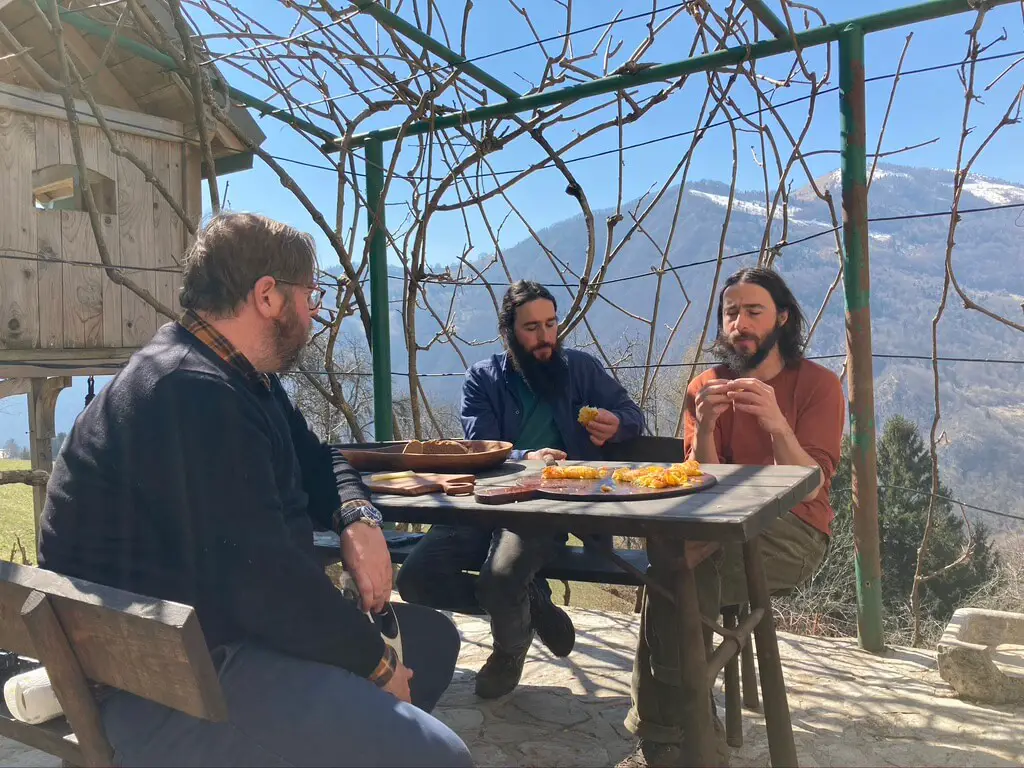
Jason with cheesemakes Jani and Samo Kutin
One man who’s pushed ahead despite all obstacles with what at times has seem a reckless passion is Jason Hartley, a British chef, restaurateur and food campaigner. He learned the food business in Amsterdam, after a successful career in advertising, and is now based in Ljubljana, the centre of a network of producers and partners with a project that’s been five years in the works and has now finally launched.
Cultisan is a business we first took a look at last September, and one that’s well suited to these strange days of enforced monotony, when enjoying food not cooked by yourself or family member is a distant memory and exotic hope. In short, Cultisan brings together a curated selection of foods and ingredients from around Europe, a virtual delicatessen and gourmet experience that you can order and enjoy without leaving you home or putting on pants, adding variety and interest to your diet while supporting farmers and artisans in these troubled times that have seen even the renowned Ana Roš, Slovenia’s only two-star Michelin chef, selling bread, paté, štruklji and more in supermarkets.
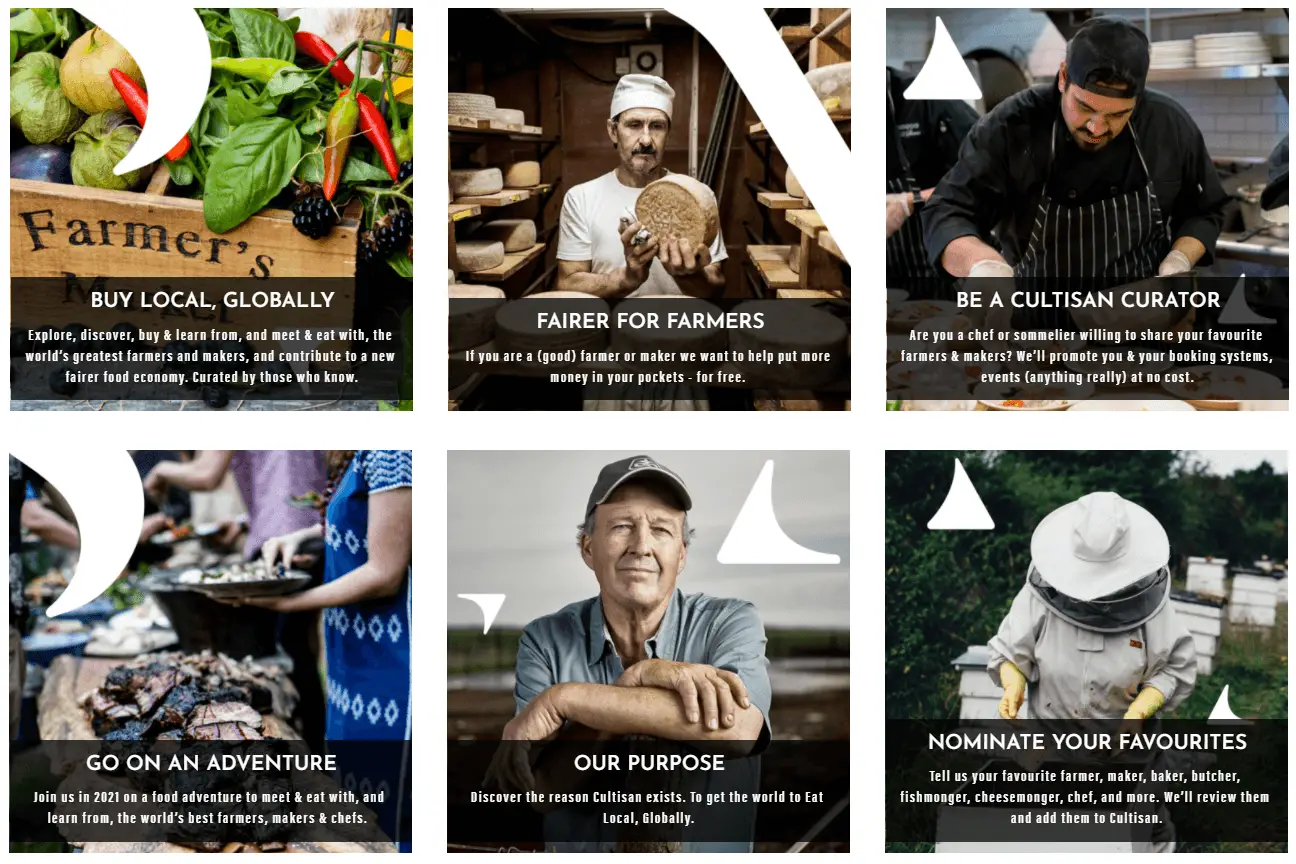
Operating under the banner of ‘terroirism’, Cultisan officially launched in the EU last week, a Slovenian-British joint venture that aims to connect consumers with farmers in a way that’s ethical and convenient, a timely project that let’s you enjoy the pleasures of the artisan’s craft at home. As Jason puts it: “We need to rid ourselves of the misguided reliance on ultra-processed food, factory farms and supermarkets. Cultisan is on a mission to create a fairer food economy that removes people who care only for profit and focus on sustainability, fairness and flavour, putting the best products from the best people in your hands and fair money in the hands of the people who make it.”
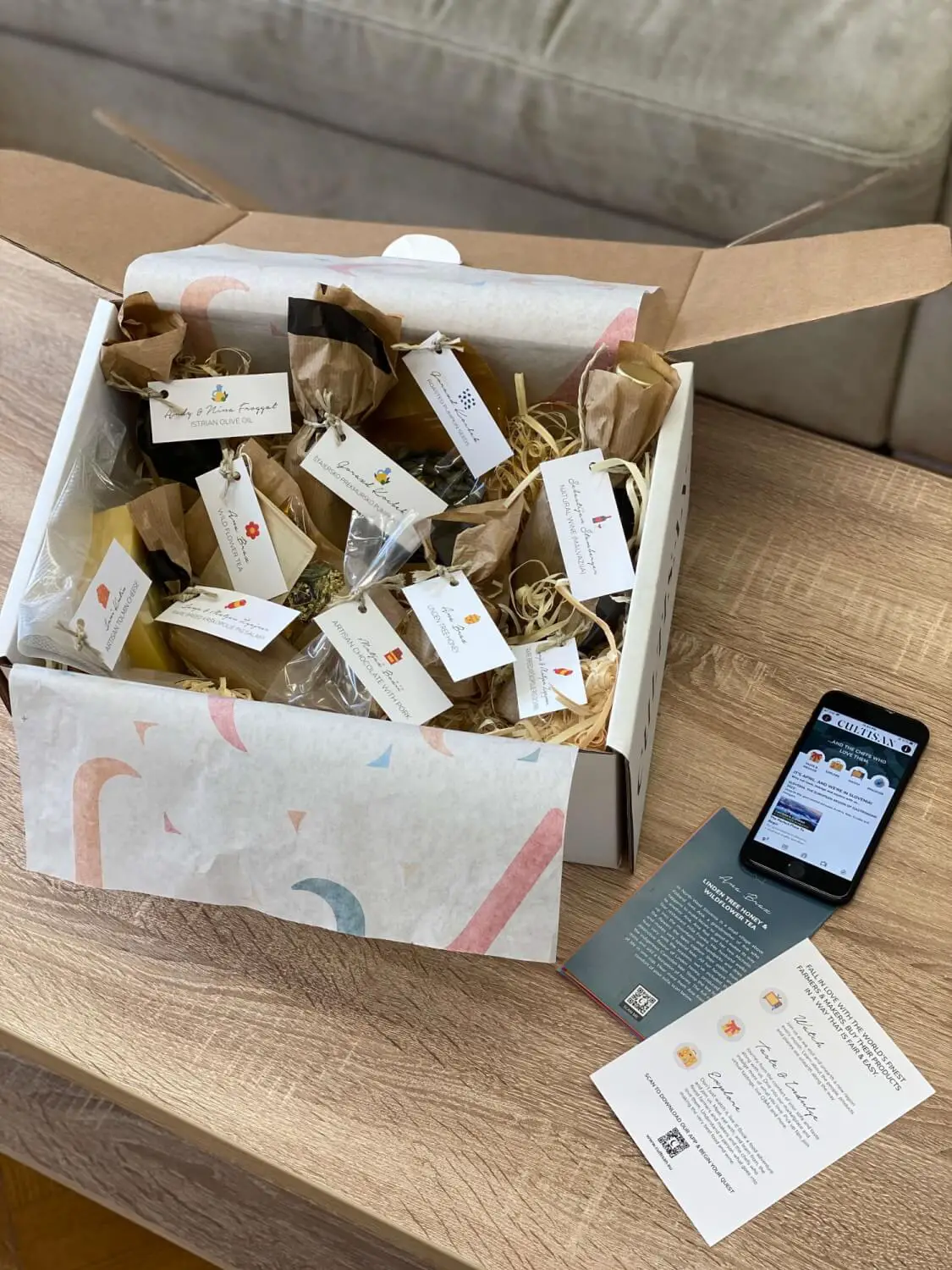
A box of delights, from the producers to you
How does it work? First Cultisan visits a new region each month and explores the places, foods and people to find the best of what’s on offer, from simple pleasures to greater indulgences. It’s an app-based project (Android / Apple) that presents the focal regions from the ground up, introducing the land and those who work it to create food and drink that has the characteristic taste and flavour imparted by the environment and conditions in which it was produced. This combination of ubiquitous technology and the fiercely local craft finds physical form in so-called ‘Adventurer’s Packs’, carefully curated packages selected with the aid of the best local chefs and sommeliers, and given the final seal of approval by the travelling gourmet himself, Jason Hartley, a man who knows a good lunch when he eats one.
Dimitrij Mačerol and Jason
But why base such a pan-European venture in Slovenia? The location is one thing, at the crossroads between east and west, north and south, making research trips that much easier. Another, less obvious to those who haven’t explored the land beyond potica, klobasa and so on, is the sheer wealth of fine and varied produce on offer in a nation blessed with enough variety in terms of topography, climate, culture and terroir that you’ll find culinary secrets and surprises around each bend in the river or road. It’s not for nothing that Slovenia has been named the European Region of Gastronomy 2021, a title that – pandemic notwithstanding – is sure to bring greater attention to the vast variety of high quality food and drink on offer in the only nation to connect the Alps, Mediterranean, Karst and Pannonian Plain.
The journey thus begins with Slovenia, with the first box including tasters of the following: Krškopoljski salami and ocvirki from Janja and Matjan Zgajner (Zgornja Voličina); Stajerska Prekmurje pumpkin oil and roasted pumpkin seeds from Gorazd Kocbek (Sveti Jurij ob Ščavnaci); Tolminc Cheese from Jani Kutin (Čadrg); Lepa honey and wildflower tea from Ana Braz (Vrsno); Chocolate praline with ocvirki from Matevž Božič (Ptuj); Istrian olive oil from Andy & Nina Froggatt (Portorož); and Malvazija wine from Sebastijan Štemberger (Tomaj). The coming months will see the roving caravan of fun move on to Emilia-Romagna and Sicily in Italy, the Douro Valley and Alentejo in Portugal, then traveling across Europe and through the Balkans.
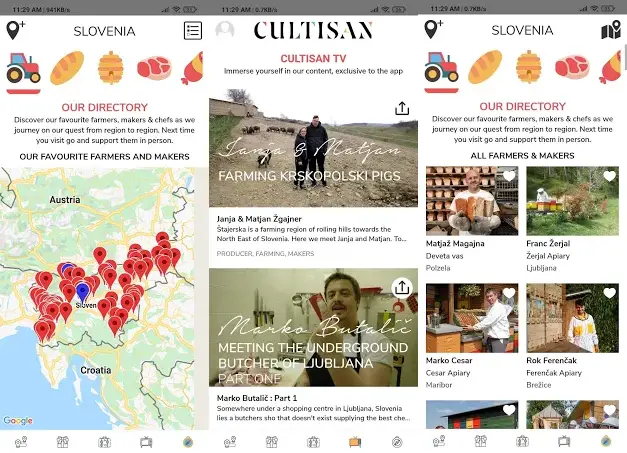
Let the app be your guide to the best that's unknown
Of course, once you’ve explored the regions and culinary delights that are showcased each month on Cultisan you’ll probably want to get closer to the experience, and that’s something Jason and his team are already working on, with an eye to when these dull, dark days are over and we can once again get dressed, leave the house and visit farms, vineyards, restaurants and markets once again and enjoy the pleasures of the table with friends old and new. To that end Cultisan will be eventually – late 2021? – be launching a travel service for people who want the ultimate food adventure, meeting, eating and learning with producers and chefs, getting closer to the land and it’s secrets. And if you’d rather travel solo then don’t worry – the app keeps track of everything and everyone Jason and company are discovering, so you can choose your own adventure and buy the best direct from the farm door.

So if you’re anxious for a little adventure from the comfort of your home, would like fine food and wine delivered to your door that you can’t find in supermarkets, or want to plan your next vacation, then just download a copy of the app (Android / Apple) and explore, or visit the Facebook page. Better days are coming soon, and Cultisan is ready to help you enjoy them.
STA, 26 February 2021 - Slovenia's draft regulation on vinegar and dilute acetic acid quality has sparked strong protests in Italy. The proposal sets down that any vinegar mixture with concentrated fruit juice or must could be labelled balsamic vinegar. The Slovenian government has said that Italy has not provided any formal comments so far.
The Austrian Press Agency (APA) has recently reported on what it describes as a battle for balsamic vinegar between Slovenia and Italy. What triggered it is the Slovenian draft, which defines balsamic vinegar as any vinegar containing concentrated or diluted fruit juice or must as an additive.
Slovenia notified the European Commission of the draft on 2 December 2020 with the standstill period ending on 3 March, the Agriculture Ministry told the STA today.
Both the economy and agriculture ministries highlighted that so far Slovenia had not received any formal comments or reservations by the Commission or member states.
"The regulation is still in the notification phase and reviews by the European Commission and all the member states are ongoing," the Agriculture Ministry added.
The same requirements for the use of the balsamic vinegar label as in the new draft are already set down under the current Slovenian regulation on vinegar and dilute acetic acid quality, which was most recently amended in 2004, the ministry noted.
In the event of formal comments on the draft made by the Commission or individual EU countries, the document will be amended accordingly, according to the ministry.
Italy protected Aceto Balsamico di Modena or Balsamic Vinegar of Modena using a protected geographical indication (PGI) in 2009. The Aceto Balsamico Tradizionale di Modena label is also protected as designation of origin (PDO), the ministry said, adding that in Slovenia balsamic vinegar was meanwhile a generic term.
The Italian Press Agency (ansa) quoted Italian Agriculture Minister Stefano Patuanelli on Thursday as saying that the Italian government will take action to protect the Modena balsamic vinegar. Using the draft, Slovenia would like to elude a system that protects the authenticity of the Italian vinegar, he added, highlighting that such protection was one of the Italian government's priorities.
The Modena consortium of balsamic vinegar producers has been critical of Slovenia's step as well, saying that the Slovenian government seeks to change the balsamic vinegar labelling into product standard.
Moreover, Slovenia's move has been criticised by the Coldiretti society of Italian farmers, which has described the attempt by the Slovenian Agriculture Ministry as a "dangerous precedent".
"The proposal regarding the Slovenian regulation on vinegar and dilute acetic acid quality does not oppose or restrict in any way the already established protected geographical indications Aceto Balsamico di Modena and the designation of origin Aceto Balsamico Tradizionale di Modena," the Slovenian ministry said.


